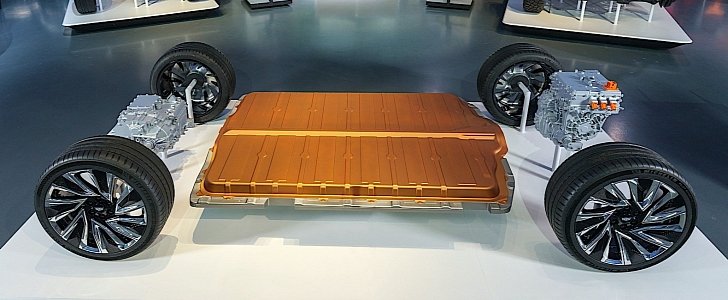Days ago, General Motors presented a new battery with up to 200 kWh of capacity and 400 miles (643 kilometers) of range. Considering that Tesla offers 390 miles from 100 kWh in a full-size sedan, there’s no denying that battery technology differs a lot from automaker to automaker.
The question is, why aren’t phone manufacturers helping the automotive industry with their extensive know-how in this domain? Samsung is one of the brands that intends to do exactly that. “This promising research is expected to help drive the expansion of electric vehicles,” reads a statement from the South Korean juggernaut, referring to “a prototype pouch cell that would enable an EV to travel up to 800 kilometers (500 miles) on a single charge.”
Sounds too good to be true? Well, you’re completely right!
Samsung hasn’t released a single photograph of the all-solid-state battery in question, but there’s another thing that makes this battery unfeasible for the time being. More to the point, it “features a cycle life of over 1,000 charges.” That’s 497,096 miles or 800,000 kilometers at the very least, which is somewhat disappointing if you remember that Tesla and the Dalhousie University are currently developing a million-mile battery pack.
Samsung chose an all-solid-state design because it supports greater energy density. Solid instead of liquid electrolytes also make the battery safer than lithium-ion packs, but the downside to most all-solid-state batteries is the anode. Needle-like crystals known as dendrites can develop on lithium-metal anodes during charging, reducing the safety as well as the battery's lifespan.
Instead of lithium metal, a 5-micrometer thick layer of silver-carbon composite serves as the anode. Ag-C is also incorporated into the pouch cell, increasing the energy density to 900 Wh / L. This material has also enabled Samsung to make the prototype 50 percent smaller than a lithium-ion battery, but as expected, the company has stopped short of offering any dimensions.
“Going forward, we will continue to develop and refine all-solid-state battery materials and manufacturing technologies to help take EV battery innovation to the next level,” said project leader Dongmin Im.
Sounds too good to be true? Well, you’re completely right!
Samsung hasn’t released a single photograph of the all-solid-state battery in question, but there’s another thing that makes this battery unfeasible for the time being. More to the point, it “features a cycle life of over 1,000 charges.” That’s 497,096 miles or 800,000 kilometers at the very least, which is somewhat disappointing if you remember that Tesla and the Dalhousie University are currently developing a million-mile battery pack.
Samsung chose an all-solid-state design because it supports greater energy density. Solid instead of liquid electrolytes also make the battery safer than lithium-ion packs, but the downside to most all-solid-state batteries is the anode. Needle-like crystals known as dendrites can develop on lithium-metal anodes during charging, reducing the safety as well as the battery's lifespan.
Instead of lithium metal, a 5-micrometer thick layer of silver-carbon composite serves as the anode. Ag-C is also incorporated into the pouch cell, increasing the energy density to 900 Wh / L. This material has also enabled Samsung to make the prototype 50 percent smaller than a lithium-ion battery, but as expected, the company has stopped short of offering any dimensions.
“Going forward, we will continue to develop and refine all-solid-state battery materials and manufacturing technologies to help take EV battery innovation to the next level,” said project leader Dongmin Im.
































